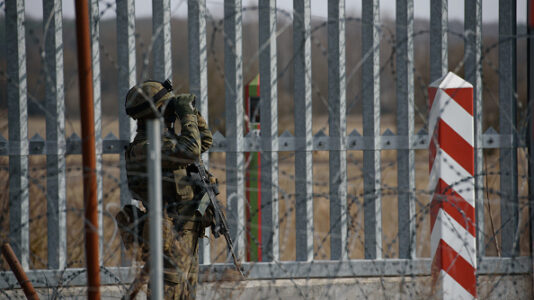Wolfgang Kubicki, the veteran liberal from the Free Democratic Party (FDP) and former vice president of the Bundestag, believes Germany is on the cusp of a political revolution with the appointment of an Alternative for Germany (AfD) chancellor only a matter of time.
In an interview with Focus, Kubicki remarked that an AfD chancellor is not some distant possibility but a near and likely outcome.
“An AfD chancellor is closer to us than we think,” he said, pointing to the growing frustration among voters who see their right-leaning choices at elections consistently ignored by a political class delivering left-wing policies.
Kubicki noted that although the vast majority of Germans have recently leaned toward conservative and right-of-center options at the ballot box — as evidenced by the most recent federal election — what they receive instead is more of the same left-leaning governance.
“The vast majority of German citizens have recently voted somehow right-wing. Now, however, they threaten to get left-wing politics,” he said.
“That can’t go on for much longer,” Kubicki warned, suggesting that voters will eventually turn to the only party vowing to break this status quo.
Kubicki’s remarks come amid another likely Grand Coalition between the Social Democrats (SPD) and the Christian Democratic Union (CDU), the latter of which promised conservative policies and fiscal prudence but has since embraced a €500 billion infrastructure fund to bankroll unprecedented state spending, pushed through parliament with support from the Greens.
Reflecting on his own party’s turbulent years in government, Kubicki was candid. “We never wanted the traffic light,” he admitted, referring to the coalition between SPD, Greens, and FDP. He explained that the FDP had found itself pulled into the alliance only after the CDU declined to form a government with them. “Unfortunately, that didn’t work out,” the party grandee said, referencing the FDP’s dismal showing in the federal elections, which saw them fail to attain the 5 percent threshold required for parliamentary representation.
The FDP, he explained, paid a heavy price. Entering government with over 11 percent of the vote, the party now languishes at the brink of irrelevance. “Our supporters were even more alienated than those of the red and green parties,” he said, blaming the lack of meaningful reforms and failure to deliver on campaign promises.
According to Kubicki, the public quickly recognized the government’s failures. “People already have a good sense of what is right and what is wrong,” he noted.
The FDP eventually left the coalition government, but Kubicki claimed the damage to the party’s reputation had already been done. “By summer (2024) at the latest, when it was no longer possible to agree on a budget, the time should have come (to leave the government),” he noted.
Kubicki did not spare the CDU from criticism, accusing party leader Friedrich Merz of failing to offer voters a genuine alternative. “If his approach was a strategy, then it didn’t work,” Kubicki said, pointing out that Merz’s hardline stance on migration only splintered the vote further, even benefiting the Left Party. He warned that disillusionment with the CDU/CSU base is deepening and, if their poll numbers fall further, Germany could face a serious reckoning.
Voters, he argued, are ready for something new. The rise of the AfD, once dismissed by the mainstream, is a logical response to years of political stagnation and broken promises.
“Above all, the loss of trust among the CDU/CSU base is already very great. If the poll ratings for the Union go down even further, it no longer matters how long the coalition lasts. Then, we will have a problem with our democracy as a whole,” he said.
His remarks are evidenced by the latest polling in the wake of what many conservative voters consider a betrayal of the election result. An Insa poll published on Tuesday showed the AfD polling at 24.5 percent — up nearly four points on its election result and on par with the CDU, which has fallen by a similar margin.
Other polls place the AfD as high as 25 percent.
“The upward trend for the AfD in the polls is solidifying! It is becoming increasingly clear: CDU/CSU and SPD cannot do it!” noted AfD co-leader Alice Weidel. “The citizens want to finally get down to business and make a sensible conservative policy for Germany!”
Though stepping back from parliamentary politics, Kubicki plans to run again as deputy federal chairman of the FDP at the party congress in May, determined to help revive liberalism in Germany. “We have to regain trust,” he said, insisting the party must return to its roots as the defender of individual freedom, civil rights, and economic competitiveness.






